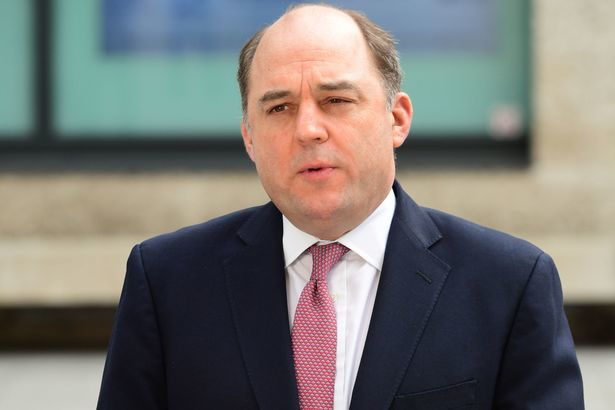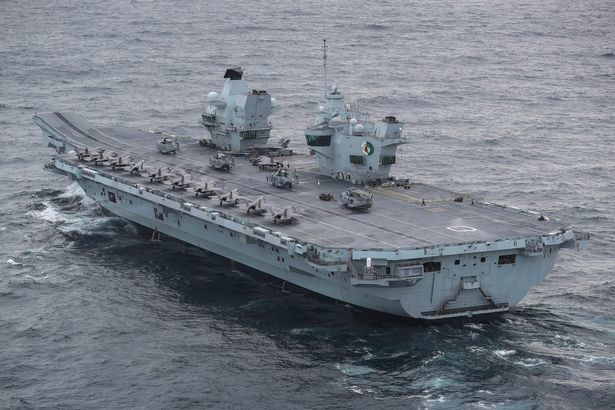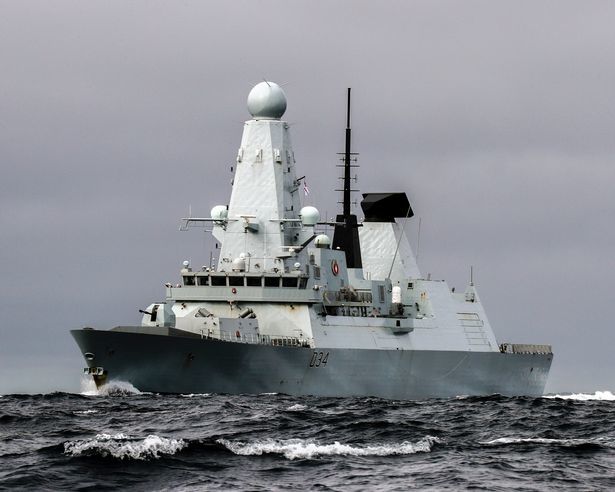
Campaigners demand built-in-Britain guarantee over £1.5bn naval supply ships
Campaigners tonight piled fresh pressure on ministers over a £1.5billion deal for three naval supply ships.
Defence Secretary Ben Wallace ruled last year that the Fleet Solid Support vessels would be warships – meaning the Government could award the bumper contract to a British yard without having to offer it to international rivals.
However, ministers are refusing to say the contract will be a “UK-tender only” – meaning foreign firms could be involved in building British warships.
In a written Parliamentary answer last week, Defence Minister Jeremy Quin signalled overseas companies could benefit from the deal.
“The detailed contract requirements are yet to be published but we would expect substantial UK involvement in any successful bid,” he said.
 Defence Secretary Ben Wallace prompted hope last year when he declared the vessels "warships"
Defence Secretary Ben Wallace prompted hope last year when he declared the vessels "warships"
“We would encourage interested international partners to work with UK firms to bid”.
The revelation triggered fresh dismay among unions and MPs who believe British workers should benefit from the lucrative order.
Former Defence Minister Kevan Jones, who chairs Parliament's cross-party group on shipbuilding, told the Mirror: “For something as important as warship design and construction, the Government must ensure this is a UK-only tender.
“Encouraging international bidders increases the likelihood of work share and supply chain investment being offshored for this crucial industry.
 Former Defence Minister Kevan Jones chairs Westminster's all-party parliamentary group on shipbuilding
Former Defence Minister Kevan Jones chairs Westminster's all-party parliamentary group on shipbuilding
“It is time for the Government to support UK shipbuilding and offer yards and supply chains the assurances they need to invest in skills and apprenticeships for the future.”
The 40,000-tonne Royal Fleet Auxiliary vessels will resupply Royal Navy warships, including the £6.2bn Queen Elizabeth-class aircraft carriers, with food, ammunition and explosives.
The competition for the contract was initially offered worldwide, with companies from Italy, Spain, Japan and South Korea shortlisted, along with a UK consortium.
 The Fleet Solid Support ships will resupply Royal Navy vessels, including the aircraft carrier HMS Queen Elizabeth, at sea
The Fleet Solid Support ships will resupply Royal Navy vessels, including the aircraft carrier HMS Queen Elizabeth, at sea The vessels will also restock Type 45 destroyers, such as HMS Diamond
The vessels will also restock Type 45 destroyers, such as HMS Diamond
The British team, backed by the Keep Britain Afloat campaign, includes Babcock, BAE Systems, Cammell Laird and Rolls-Royce.
The tendering process was halted suddenly in November 2019 – raising hopes the terms could be reset to boost British firms' chances of winning the deal.
The Ministry of Defence triggered fresh dismay last August when foreign firms were invited to take part in early plans to build the vessels.
But in October, Mr Wallace delighted campaigners by designating them as “warships” – meaning they can be built in Britain without allowing overseas firms to bid.
The tender for the contract is expected to be issued this spring.
Confederation of Shipbuilding and Engineering Unions general secretary Ian Waddell accused ministers of “leaving the door open to foreign competition not just for auxiliary ships but for frigates and destroyers too”.
 Confederation of Shipbuilding and Engineering Unions general secretary Ian Waddell
Confederation of Shipbuilding and Engineering Unions general secretary Ian Waddell
He added: “FSS is a vitally important strategic procurement.
“Committing to building these ships in the UK will give shipbuilders the certainty to invest in facilities and the workforce, not just for the FSS but for the replacements for the HMS Bulwark and Albion due at the end of the decade.
“This has the potential to position the UK as a centre for excellence for auxiliary shipbuilding able to successfully compete in a global market.
“This will secure well-paid shipbuilding jobs and our regional economies for a shipbuilding industry which is under constant threat, despite what the Government says.”
Plymouth Sutton and Devonport MP Luke Pollard, the Shadow Environment Secretary, said: "Ships, tanks and planes for our military should be built British by default.
 Labour MP Luke Pollard, who represents Plymouth Sutton and Devonport
Labour MP Luke Pollard, who represents Plymouth Sutton and Devonport
“I represent Britain's largest dockyard and building the new RFA ships in the UK would not only create more jobs in coastal communities like mine and they would also provide careers' opportunities for young people.
“Labour has been vocal that this contract should not be sent abroad."
A Ministry of Defence spokeswoman said: “The final contract for the manufacture of the Fleet Solid Support ships will be awarded to a UK business, either solely or as part of a consortium.
“We welcome international partners to team with British firms.
“We will seek to maximise UK social value in the programme and recognise the opportunities to strengthen the UK maritime sector.”










